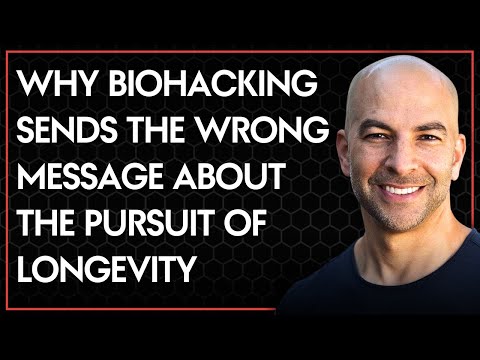In my opinion, a great short talk from Dr Attia. Of course I completely agree with him, and understand many here will disagree.

I don’t disagree with Peter Attia on this. I’m in no hurry to do follistatin gene therapy myself - but I do find it interesting to follow and I hope it becomes validated, cost effective and available sooner rather than later…
More on what Attia is talking about: Minicircle: This biohacking company is using a crypto city to test controversial gene therapies (MIT Tech Rev)
At a broader level, it comes down to definition. Many people in the traditional medical industry consider Peter Attia a biohacker because he takes rapamycin. I’m not sure what exactly Peter defines as a biohacker - but it seems to be people spending large amounts of money on new therapeutic approaches like gene therapy, so it sounds like he’s talking more about people in the Bryan Johnson mold.
Ultimately everyone has a different risk/reward profile. The important thing that we try do do here, I think, is to tease out the potential risks and rewards of different approaches as much as possible so that you can try to make the best decisions for yourself with the best and most current scientific data.
I dont think follistatin gene therapy will be much use. It may do some harm. It does not seem to target aging. OTOH i disagree with Attia on supplements.
According to this guru, a non-diabetic person who deploys a CGM is a ‘biohacker’.
What well-known guru does just that, hmmmmmm…?
Kind of weird that these two extemely methodical individuals just launch in their biohacker diatribes with making an effort to define the term. To be fair, Stanfield says something about ‘biohacks’ having at best marginal gains, but risking major downside. That’s just a trivial truism. Anything with poor risk/reward? Biohack! Good risk/reward? Medicine 3.0!
One thing I think they’re both trying to do is generate some ‘product differentiation’ and position themselves upmarket vs. the great unwashed masses of ‘biohackers’.

Peter Attia’s point is that it distracts the average person.
I see plenty of biohackers who don’t do the apparently not evident basics like keeping lipids low, so it could be applicable to the more advanced biohacker @John_Hemming is an example ![]() . Then you have Michael Lustgarten who is increasing his LDL. The confusion is so palpable as you see what people focus on, what they discuss, and what they link. The solid foundation isn’t there, but just my opinion.
. Then you have Michael Lustgarten who is increasing his LDL. The confusion is so palpable as you see what people focus on, what they discuss, and what they link. The solid foundation isn’t there, but just my opinion.
I take the view that there are uncertainties. I may be right on what I think about issues and I may be wrong. I have decided that I am comfortable with my results on ApoB and LDL-C
Ok, so why don’t you decrease it to levels below normal shown in mendelian randomization and clinical trial data to decrease cardiovascular disease and all-cause mortality?
Because
a) I am not persuaded it is high enough to matter. Normal medical protocols in the UK would not call for any action.
b) Because I am likely to be slightly driving up lipids anyway
c) Because I am of the view that ASCVD is in part a disease of aging caused in part by failures of gene expression as well as high levels of lipids.
That actually isn’t far from the truth.

